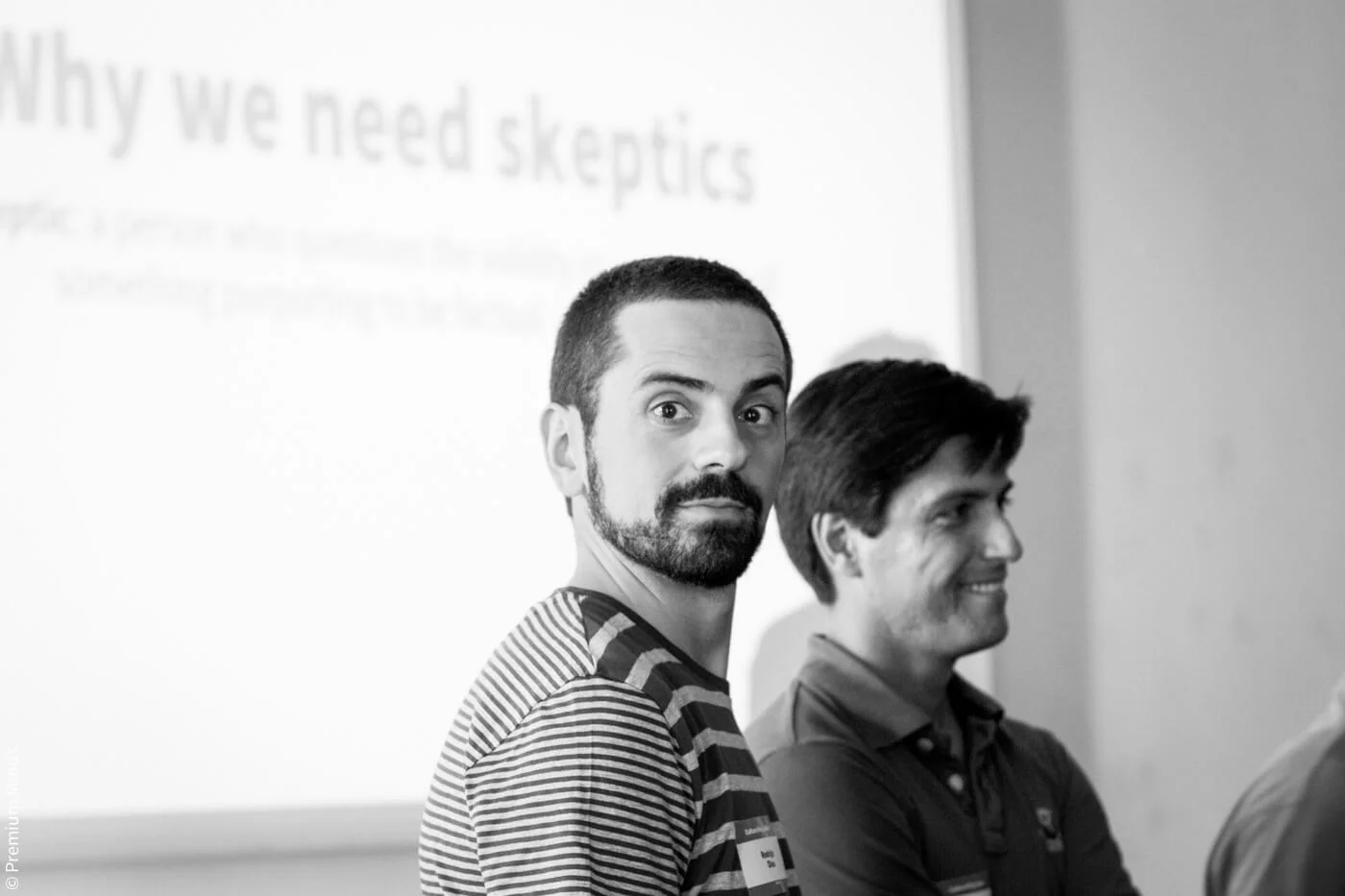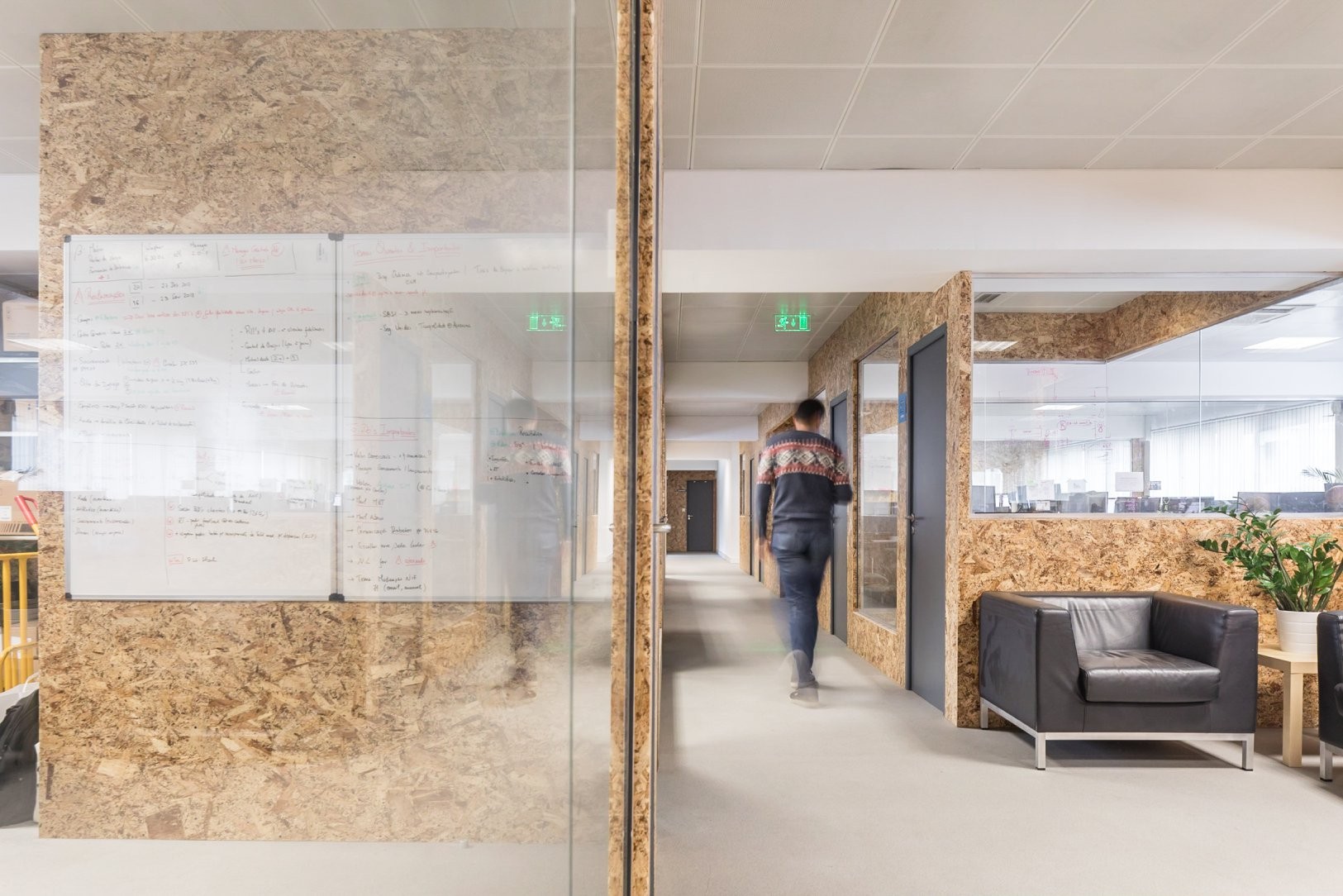Recently, I gave a talk with this same title at the Culture@Org Lisbon Meetup, a group of people concerned about their companies' cultures. This post is a summary of that talk.

skeptic: a person who questions the validity or authenticity of something purporting to be factual. In Dictionary Online
One thing I love about working at a software house is that it's full of skeptics. I believe they help us keep an honest and healthy culture. For me they are a continuous challenge. A good, tough challenge. Here's why:
Skeptics don't buy bullshit
Skeptics can smell bullshit from a distance. They don't believe in dreams, nor in Hollywood scenarios. They value things for what they are, not for what someone good with words wants them to be. This permanent skepticism help to create a space where all those corporate masks people use to look good simply don't work.
One time we asked the whole company: "Do you know why our customers choose us over our competition?". You might expect answers like: "We have the expertise, enthusiasm, flexibility and commitment to deliver results time after time within our deadlines." That would be very nice, but that would also sound like bullshit. The reality: 45% of the people surveyed answered that they didn't know. No fancy words.
This honesty makes the weekly questions we pose to the whole company really valuable. With these questions we have a permanent finger on the pulse of our culture's health. We can spot crisis in the making and act fast.
Skeptics ask the hard questions
When I go to a client I always like to have a skeptic by my side. He will ask the questions that I can't ask either because of politics, or from commercial pressure. He will not only ask those questions to the client, but also ask them to me, which might seem risky. Sometimes it is, but I prefer it like that.
The attitude of really trying to understand what things mean guarantees that we will not sell dreams, and later on deliver nightmares.
This attitude of questioning the validity of things also brings a responsibility for what is being done. A skeptic will not do a task just because I ask them to. He will question what is the purpose and the value of what he's doing. Because we have a company where we want to grow without managers, this is crucial. Everyone has to be the owner of what they're doing. That means people really need to understand why they are doing something, and agree that it has to be done.
Skeptics spot unfulfilled promises
When we have a new hire, the very first thing for them is a meeting about our cultural values. We talk about our desired culture: honesty, respect and responsibility. We also ask new hires to be responsible for it.
During this conversation some people raise their eyebrows while leaning back with their head slightly turned. Those are the skeptics. I am sure they will let me know if one day I'm not up to the values I have described to them. That is invaluable for me.
Skeptics will be on the lookout, guaranteeing that the very simple human concepts upon which our culture is based don't just become words on the wall.
In our first office we had several demotivational posters on the walls, they had phrases like:
- Motivation: If a pretty poster and a cute saying are all it takes to motivate you, you probably have a very easy job. The kind robots will be doing soon.
- Worth: Just because you're necessary doesn't mean you're important.
- Achievement: You can do anything you set your mind to when you have vision, determination, and an endless supply of expendable labor. (my favorite)
Some people would read those posters and would not understand the joke. It was our way of saying that we are skeptical of motivational books, speakers and posters. We will not create our culture from posters, we will create it with daily actions. This hasn't changed.
Skeptics create disruption, which leads to innovation
We have always been very informal at Premium Minds, even on subjects like performance reviews. For some years we have trusted the daily feedback everyone gives and we'd only do one annual review with our Managing Partner. This review was more about feedback than evaluation.
Over the past two years we've doubled the team and are now over 75. This model wasn't working with so many people and we decided to redesign it. After some research and brainstorming, I presented a new model during our monthly all-hands meeting.
It was based on a biannual triangular performance evaluation: the product owner evaluated the team and agile coach; the agile coach evaluated the team and product owner; the team evaluated the product owner, agile coach and themselves.
Immediately, skeptics started arguing that this model wasn't aligned with our culture. They said it was too formal and that it created a tight structure that wasn't always real. They didn't believed that there should be this specific moment in time where everyone would evaluate each other. It felt fake, they argued. Someone brought the idea of randomness: random people evaluating, random evaluation moments.
When I heard the word random I had a tickling sensation, as if it was a joke. But people were seriously talking about it, and I listen to them. We ended up creating a stochastic feedback model (which deserves a post on its own). This idea of randomness was disruptive and it might lead to innovation within our processes. We're trying it out for the first time this month. I'm very excited to see where it will lead us.
Skeptics are not cynics
Cynics are the evil twins of skeptics. Cynics will question the validity of things not to understand it but to defend themselves. We become cynical when we feel hurt by or angry at something.
A skeptic that isn't respected by the organization will tend to become cynical. Respecting skepticism is what allows Premium Minds to be constantly experimenting with new processes and tools. We are always questioning if what we are doing and how we are doing it is the best possible way. And we know people will argue not to defend themselves but to defend the truth.
In this constant search we have changed many things and tried many others. Skeptics trust the organization and so are willing to try and iterate to improve things. They are a huge factor for the success of our culture.
The Culture@Org Lisbon Meetup will meet again on Thursday September 24. Join us if you can.




